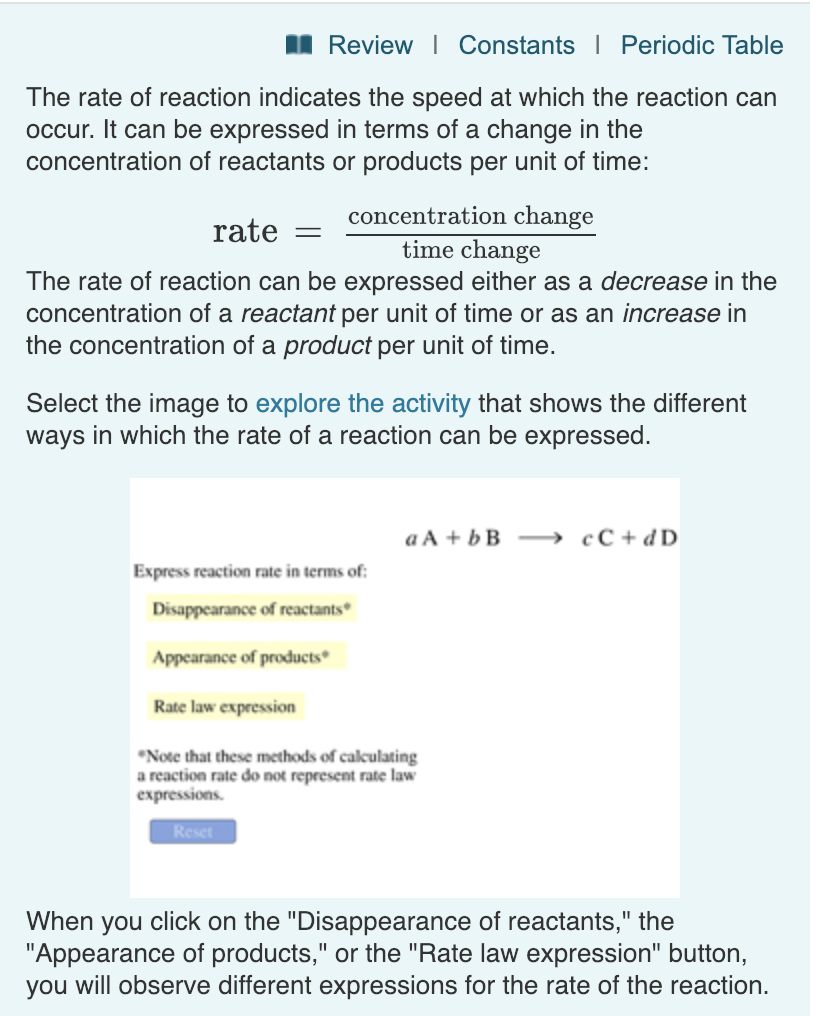According to the Rate Law How Do Concentrations Affect Rate
Hence the rate constant must have units of reciprocal seconds s 1 to have units of moles per liter per second for the reaction rate. Ms 1 Ms.

Determining A Rate Law Using Initial Rates Data Worked Example Video Khan Academy
When concentrations are already high a limit is often reached where increasing the concentration has little effect on the rate of reaction.
. Hence rate of reaction will increase. Difference in surface area will affect the reaction rate of concentration because a high surface area produces a faster reaction rate and low surface area produces a slower reaction rate which affect the accuracy of the results and decreased the validity. Five Factors That Affect Reaction Rates.
According to rate law rate of a reaction depends upon the concentration of the species participating in the reaction. According to rate law rate of a reaction depends upon the concentration of the species participating in the reaction. -rate of the reaction is directly proportional to the concentration of the reactant-kA1-slows down as the reaction proceeds because the concentration of the reactant decreases Ms-1.
B The only concentration in the rate law is that of cyclopropane and its exponent is 1. Hence the rate constant must have units of reciprocal seconds s 1 to have units of moles per liter per second for the reaction rate. For example Rate.
Due to this there will rapid formation of products. Updated May 12 2018. A The rate law contains only one concentration term raised to the first power.
Correct answer to the question According to the rate law how do concentrations affect rate. Therefore when there is increase in concentration of reactants then there will be more number of collisions. In second-order or higher-order reactions the reaction rate is proportional to the exponential value of the reactants.
Due to this there will rapid formation of products. A The rate law contains only one concentration term raised to the first power. 40 mL of HCl would be 405 or 395 mL.
The rate increases as concentrations decrease. According to the rate law how do concentrations affect rate. When several reactants are involved increasing the concentration of one of them may not affect the rate of reaction if.
Therefore as the reaction progresses and the concentration of the reactants decreases the reaction rate decreases exponentially. How do concentrations affect rate according to the rate law. Rate laws or rate equations are mathematical expressions that describe the relationship between the rate of a chemical reaction and the concentration of its reactants.
For example Rate Therefore when there is increase in concentration of reactants then there will be more number of collisions. The rate increases as concentrations increase. There is no way to predict what the values of the exponents are they must be determined by experiment so the rate law doesnt say anything about the effect of concentration.
The rate is independent of concentrations. B The only concentration in the rate law is that of cyclopropane and its exponent is 1. As the reactant concentration decreases the reaction rate also decreases proportionally.
As described in the previous module the rate of a reaction is affected by the concentrations of reactants. Ms 1 Ms.
Factors Affecting Rate Of Chemical Reactions Adichemistry

Determining Rate Laws From Experimental Data Youtube

Solved Reviewi Constantsi Periodic Table The Rate Of Chegg Com

No comments for "According to the Rate Law How Do Concentrations Affect Rate"
Post a Comment